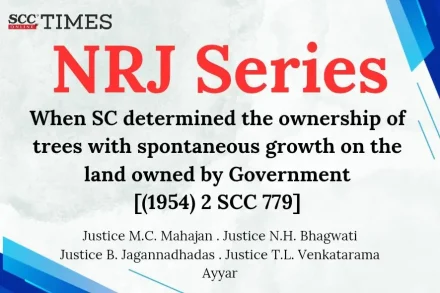
NRJ Series | When SC determined the ownership of trees with spontaneous growth on the land owned by Government [(1954) 2 SCC 779]
This report covers the Supreme Court’s Never Reported Judgment on ownership, dating back to the year 1954.

This report covers the Supreme Court’s Never Reported Judgment on ownership, dating back to the year 1954.
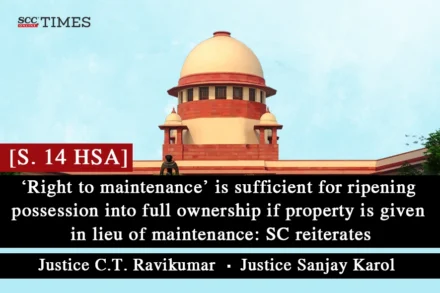
“Hindu Women’s right to maintenance is not by virtue of any statute, but is found in Shastric Hindu law; maintenance has to be proper, appropriate and adequate, giving the woman so maintained the ability to continue to live the life, similar to what she once lived.”

Delhi High Court held that the dismissal of the petitioner’s application under Order VII Rule 11 CPC was warranted, emphasizing the need to focus solely on the allegations in the plaint at the preliminary stage because the issues regarding limitation and adverse possession required further evidence and examination, which could not be resolved without a full trial.

“Only when the subject matter of the dispute relates to actions in rem, that do not relate to subordinate rights in personam arising from rights in rem, the subject matter will be non-arbitrable.”
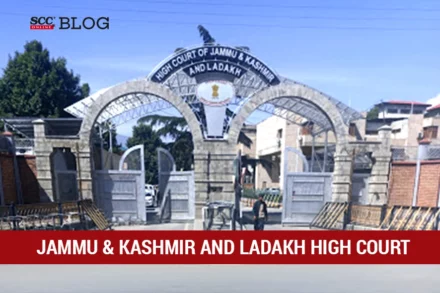
The High Court opined that the petitioner has a right of opening of windows on his property even if they are facing towards the house of the respondent.
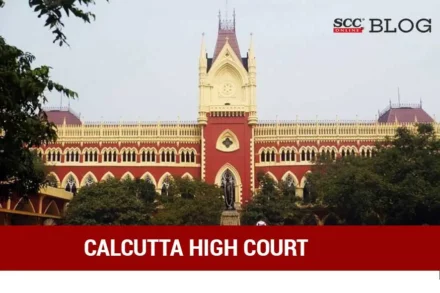
Calcutta High Court emphasised that the appropriate Government has not cancelled or amended the terms of the exemption under Section 17 of the Employees’ Provident Funds and Miscellaneous Provisions Act, 1952.
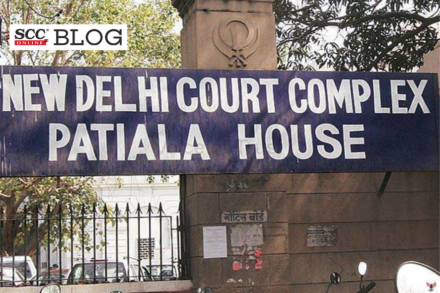
The landlord was offered the possession of the suit property which was refused by him on the pretext of damage to the suit property, whereas no evidence has been adduced by him about damage to the suit property except his bald statements.
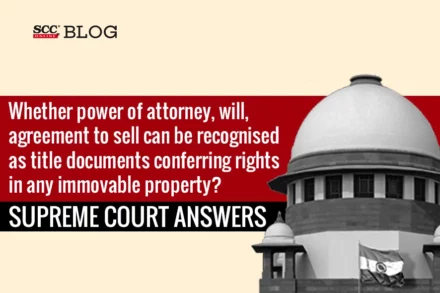
Supreme Court said that the entry of the appellant over part of the suit property is simply as a licencee of the respondent. He does not continue to occupy it in the capacity of the owner. Thus, the licence having been terminated, he has no right to remain in possession but to restore possession to the person having rightful possessory title over it.

by Rohan Khosla†
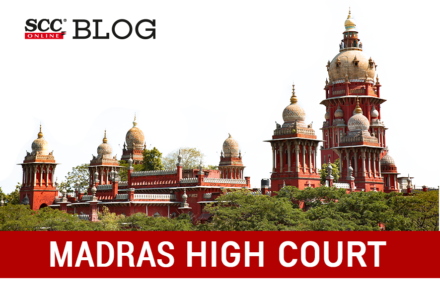
Madras High Court said that Rule 55-A is delegated legislation which cannot go beyond the scope of the Parent Act viz., the Registration Act as well the Transfer of Property Act which is the substantive law governing the transfer of immovable properties. Hence, it is held that the first proviso is clearly ultra vires and unconstitutional.
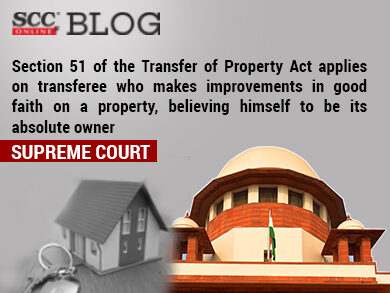
Supreme Court upheld the Himachal Pradesh High Court’s order holding the respondent as the owner of the encroached land, as an encroacher cannot claim benefit of Section 51 of the Transfer of Property Act, 1882.
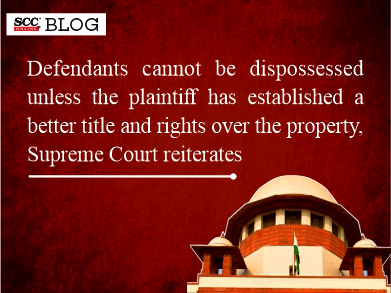
The Supreme Court observed that the defendants, being in possession, would be entitled to protect and save their possession, unless the person who seeks to dispossess them has a better legal right in the form of ownership or entitlement to possession.
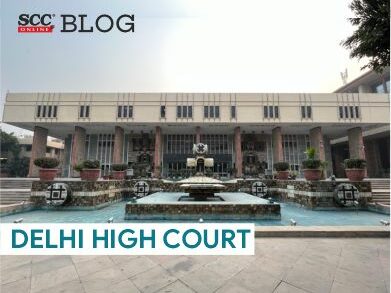
In the present case, Sukam Systems (P) Ltd. alleged infringement and passing of by Lithium Power Energy (P) Ltd. of its registered trade marks ‘Su-Kam’, ‘BIG conqueror Tubular Battery’ and ‘BIG Warrior Tubular Battery’.
African Court on Human and People’s Rights (‘AFCHPR’): While deciding the instant matter concerning the eviction of a Kenyan indigenous minority ethnic
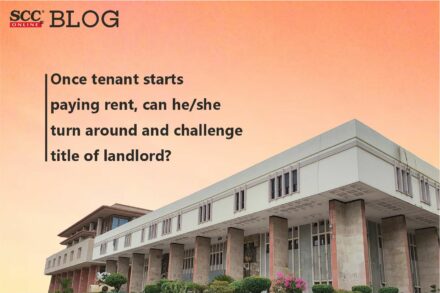
Delhi High Court: In a matter with regard to the grant of leave to defend, Subramonium Prasad, J., expressed that, the tenant
Rajasthan High Court: Sameer Jain J. dismissed the petition and refused to interfere with the impugned order. Factual Background The facts of
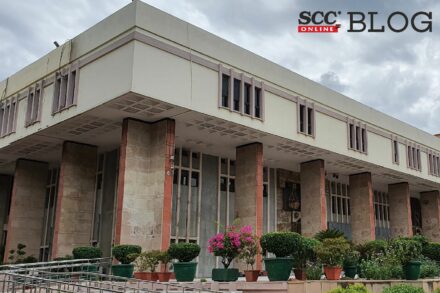
Delhi High Court: Asha Menon, J., is considering a very interesting case where the dispute between the parties is regarding the ownership

by Pramod Rao†
Cite as: 2022 SCC OnLine Blog Exp 15

Competition Commission of South Africa in a statement prohibited the transaction proposed by ECP Africa intended to acquire Burger King (South Africa)

by Achal Gupta†